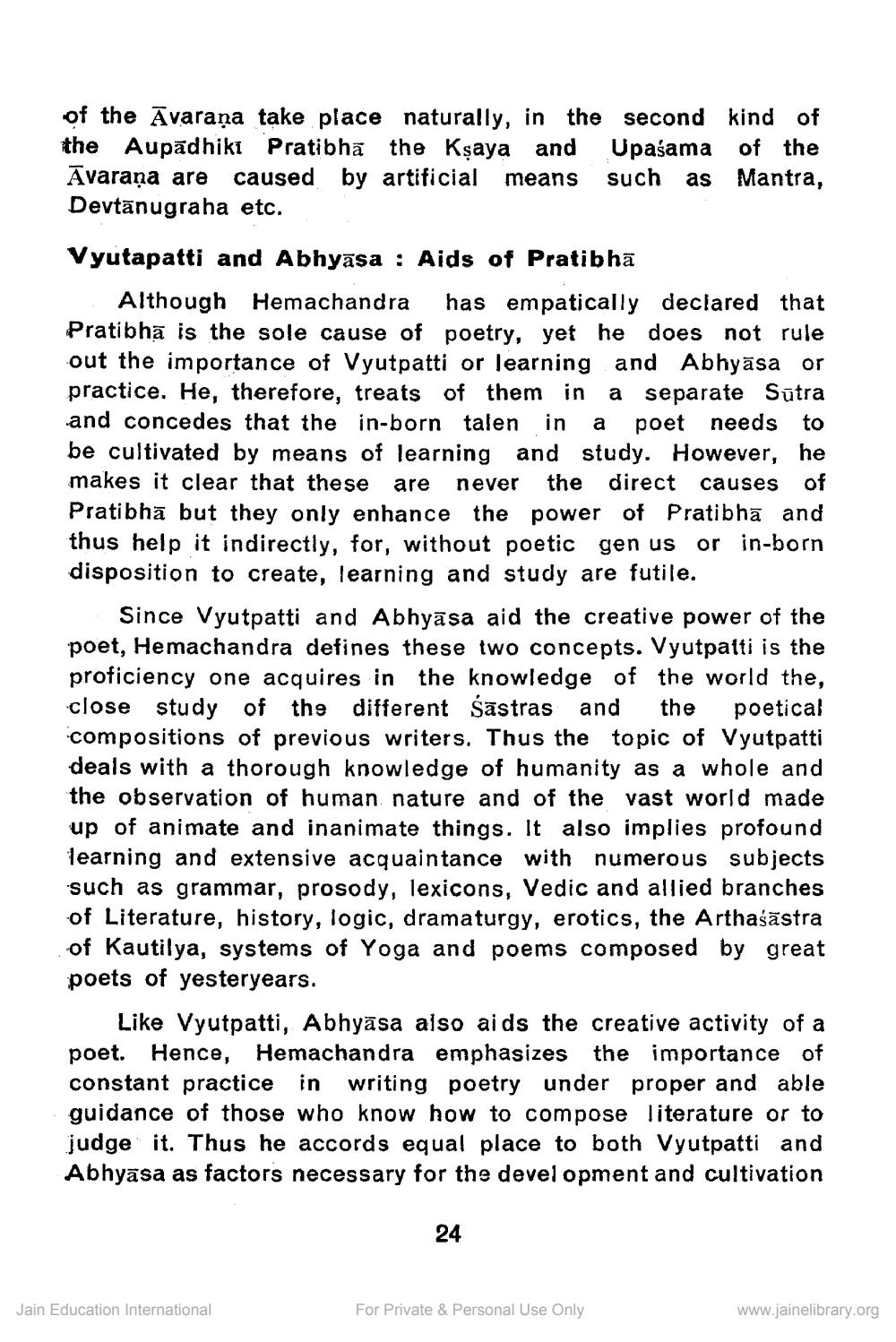________________
of the Āvarana take place naturally, in the second kind of the Aupādhiki Pratibhā the Kşaya and Upašama of the Āvaraņa are caused by artificial means such as Mantra, Devtānugraha etc. Vyutapatti and Abhyasa : Aids of Pratibha
Although Hemachandra has empatically declared that Pratibha is the sole cause of poetry, yet he does not rule out the importance of Vyutpatti or learning and Abhyāsa or practice. He, therefore, treats of them in a separate Sūtra and concedes that the in-born talen in a poet needs to be cultivated by means of learning and study. However, he makes it clear that these are never the direct causes of Pratibhā but they only enhance the power of Pratibha and thus help it indirectly, for, without poetic gen us or in-born disposition to create, learning and study are futile.
Since Vyutpatti and Abhyāsa aid the creative power of the poet, Hemachandra defines these two concepts. Vyutpatti is the proficiency one acquires in the knowledge of the world the, close study of the different sāstras and the poetical compositions of previous writers. Thus the topic of Vyutpatti deals with a thorough knowledge of humanity as a whole and the observation of human nature and of the vast world made up of animate and inanimate things. It also implies profound learning and extensive acquaintance with numerous subjects such as grammar, prosody, lexicons, Vedic and allied branches of Literature, history, logic, dramaturgy, erotics, the Arthaśāstra of Kautilya, systems of Yoga and poems composed by great poets of yesteryears.
Like Vyutpatti, Abhyāsa also aids the creative activity of a poet. Hence, Hemachandra emphasizes the importance of constant practice in writing poetry under proper and able guidance of those who know how to compose literature or to judge it. Thus he accords equal place to both Vyutpatti and Abhyasa as factors necessary for the development and cultivation
24
Jain Education International
For Private & Personal Use Only
www.jainelibrary.org




